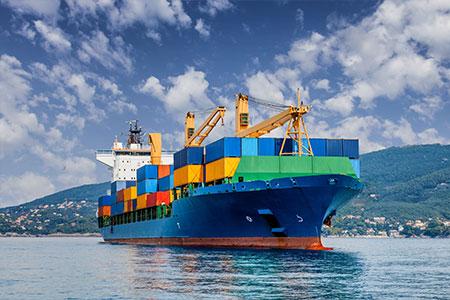Decarbonising Shipping Common Interest Group

This Common Interest Group tackles the challenge of decarbonising maritime shipping. It brings together government-nominated participants, stakeholders from ITF’s Corporate Partnership Board, international organisations, non-governmental organisations and other additional invitees.
Maritime transport is a large emitter of greenhouse gases (GHGs). The sector accounts for approximately 3% of total GHGs. Demand for maritime transport is widely expected to grow in coming decades and unless action is taken, its GHGs will also rise.
What we do
The Group aims to stimulate the implementation of policies that will decarbonise maritime shipping. To that end, the Group identifies which incentives and policy tools will help the adoption of decarbonising shipping.
How we do it
The Group organises regular exchanges to support governments in answering critical questions on how to achieve this goal. Among these are the questions of how governments can introduce effective carbon pricing and fuel standards in shipping, and how impacts of such measures on countries can be measured. It also examines ways to decarbonise coastal shipping. Participants have also expressed interest in assessing how these actions will affect the private sector. A report will summarise the Group’s findings and help governments commit to specific actions.
Who participates
The countries participating in the Decarbonising Shipping Common Interest Group are: Argentina, Belgium, Canada, Chile, Denmark, Finland, France, Germany, Hungary, Iceland, Japan, Marshall Islands, Mexico, Netherlands, Norway, Portugal, Singapore, Solomon Islands, Spain, Sweden, United Kingdom, United States and the European Commission.
The Group is chaired by Víctor Jiménez (Permanent Representation of Spain to the International Maritime Organisation). Olaf Merk (ITF) coordinates the project activities.
Policy Insights
- Some barriers need to be overcome before member states of the International Maritime Organization will adopt carbon pricing and fuel standards for international shipping.
- Carbon pricing and fuel standards are essential to create a market for zero-carbon shipping, but there are different ideas on what would be the most appropriate design for such mechanisms. Important elements on which convergence would need to take place needed are: the most effective mechanism that is most effective in for stimulating investment in zero-carbon solutions by ship owners and operators, efficiency of implementation, and compensation for disproportionate negative impacts.
- Comprehensive impacts of assessments on states are crucial for the possible acceptance of decarbonisation measures for the shipping industry, including carbon pricing. In addition to assessment of negative impacts, such assessments could also take into account climate change impacts on shipping and ports, as well as business opportunities related to decarbonisation of shipping.
Publications